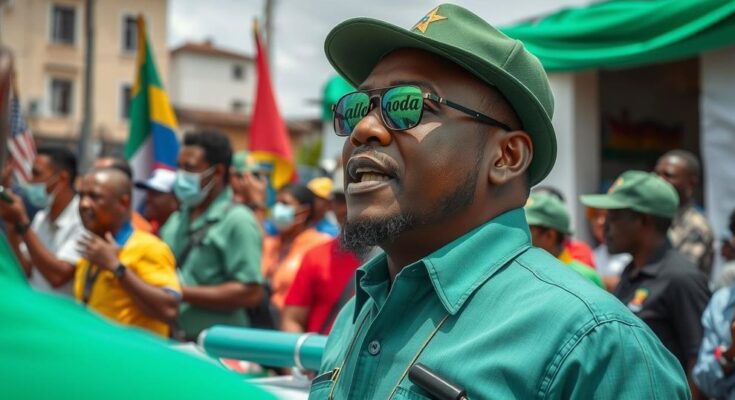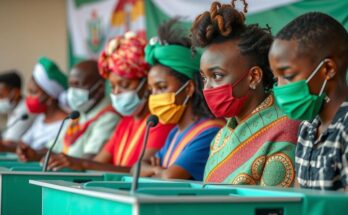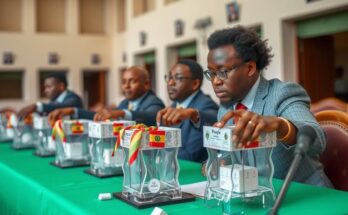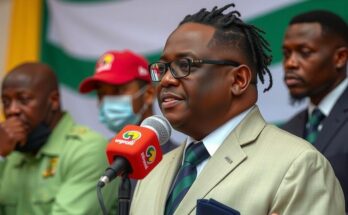Comoros held elections to elect lawmakers, with opposition groups boycotting due to transparency issues. Nour El Fath Azali, the president’s son, is a key candidate amidst concerns of electoral integrity. Voting chaos included late openings of booths, raising questions about privacy. Following a history of contested elections, the situation underscores the political challenges facing Comoros.
On Sunday, the nation of Comoros held elections to choose lawmakers amid boycott intentions from numerous opposition factions, who criticized the process for its perceived lack of transparency. Nour El Fath Azali, the son of President Azali Assoumani, is contesting in the elections, representing a constituency near the capital, Moroni. Reports from the scene indicated delays in polling station operations due to late arrivals of required materials, raising concerns regarding the organization of the election.
U.S. observer James Burns noted that election officials were compelled to adapt, resulting in improvised voting setups that compromised voter privacy, with some booths inadequately constructed. Nour El Fath Azali, recently appointed as secretary general, had previously advised his father, enhancing his authority to that of a de facto prime minister, as he now oversees the approval of decrees issued by local governors and ministers. Critics have raised alarm over President Azali’s evolving authoritarian approach, especially following his contested re-election in January 2024, which led to significant civil unrest.
In an effort to not repeat the 2020 election boycott that allowed Azali’s governing Convention for the Renewal of the Comoros (CRC) party to dominate without challenge, several opposition candidates participated in the current election. Citizens reported discrepancies, such as missing indelible ink for validating votes, undermining confidence in the electoral system. With approximately 340,000 registered voters, 33 parliamentary members are to be directly elected through a two-round voting process, culminating in a second round on February 16, 2024. The opposition’s concerns of electoral fraud persist, following Azali’s earlier questionable victory and the subsequent violent protests that left one individual dead and many injured.
The political landscape in Comoros has been tumultuous, marked by allegations of authoritarian governance under President Azali Assoumani. After ascending to power via a coup in 1999, Azali has faced several electoral challenges, notably a disputed re-election in January 2024. His son, Nour El Fath Azali, appointed to a prominent political role in July 2024, signifies the consolidation of power in the ruling party, prompting further unease among opposition members who have opted to participate in the latest election under duress. The previous legislative election in 2020 was boycotted, permitting the CRC an uncontested dominion over parliament, which fueled calls for a more accountable electoral process this year.
The electoral environment in Comoros remains fraught with challenges, as the recent elections unfold under the shadow of boycott threats and criticisms regarding transparency. Nour El Fath Azali’s candidacy and the CRC’s expected dominance signal a continuation of the political status quo, raising serious questions about the integrity of the electoral process. Observers and citizens alike have expressed reservations, highlighting the importance of ensuring a fair voting mechanism in a nation striving for democratic governance.
Original Source: www.barrons.com




